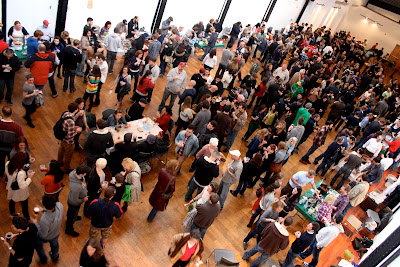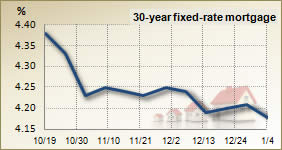Morgan's Pier Announces Summer BBQ Chef Series
 The hits keep on coming with Morgan's Pier, as today brings the exciting announcement that they'll be hosting a few famous local chefs to do a BBQ series this summer. Mike Solomonov (Zahav, Federal Donuts), Kevin Sbraga (Sbraga, Top Chef), and Terence Feury
(Fork) are scheduled to each do a day of their own BBQ specialties on
the pier. Little Baby's Ice Cream will have their trademark tricycle at
the pier everyday, in addition to a free-standing hot dog stand. The tap
list will feature 20 rotating drafts from regional breweries.
The hits keep on coming with Morgan's Pier, as today brings the exciting announcement that they'll be hosting a few famous local chefs to do a BBQ series this summer. Mike Solomonov (Zahav, Federal Donuts), Kevin Sbraga (Sbraga, Top Chef), and Terence Feury
(Fork) are scheduled to each do a day of their own BBQ specialties on
the pier. Little Baby's Ice Cream will have their trademark tricycle at
the pier everyday, in addition to a free-standing hot dog stand. The tap
list will feature 20 rotating drafts from regional breweries.You can't have an Avram Hornik spot without live music, which they seem to have covered pretty well. R5 Productions' Sean Agnew is curating a free Saturday concert series, and each and every Sunday, the Sundae Open Air Party will make a home at Morgan's Pier. DJ Dave P is also setting up a lineup of international DJ acts that will make appearances throughout the summer. Looks like Morgan's Pier is shaping up as the place to be during the dog days of summer.
Dave Katz Releases Morgan's Pier Menu, Opening 5/25
In what's becoming an All-Star partnership on the waterfront, Chef David Katz of Mémé has paired up with Avram Hornik to develop the menu at the upcoming Morgan's Pier. Katz won't be working the line, but he's helping out Hornik with the development, as well as finding a full-time chef for the project."Avram's a friend, and he needed some help, so I stepped in," Katz told Eater. "He's a good guy, and the project is cool. But, I won't be on the line, I've got a restaurant to run."
Katz's menu is full of grill-ish foods, like burgers, tacos, pulled pork sandwiches, and popcorn shrimp. There's something for just about everyone, as Katz has numerous veggie options, too, like grilled fruit and corn, and fried Jersey tomatoes. The debut for the outdoor beer garden (and Katz's awesome menu) is next Friday, May 25th.
Check out their menu HERE
Morgan's Pier is the name attached to Avram Hornik's new project on the waterfront. Replacing what was once Octo and previously Rock Lobster, Morgan's Pier is going for the beer garden vibe and backyard grilling style cooking. Hornik also told The Insider he's in talks with a "name-brand" chef to run the kitchen. Let's hope this concept sticks, as no previous owner has been able to bring in crowds to the surprisingly challenging location, even though the river provides a pretty backdrop to the space.
No timeline yet for the opening of Morgan's Pier, which is named for the first man to cross the Ben Franklin Bridge (George C. Morgan), which looms over the horizon above the bar.
Hornik has been on a roll of late, opening Philly's favorite new music venue, Union Transfer, and is the man behind the upcoming reboot of Ortlieb's in Northern Liberties.
































